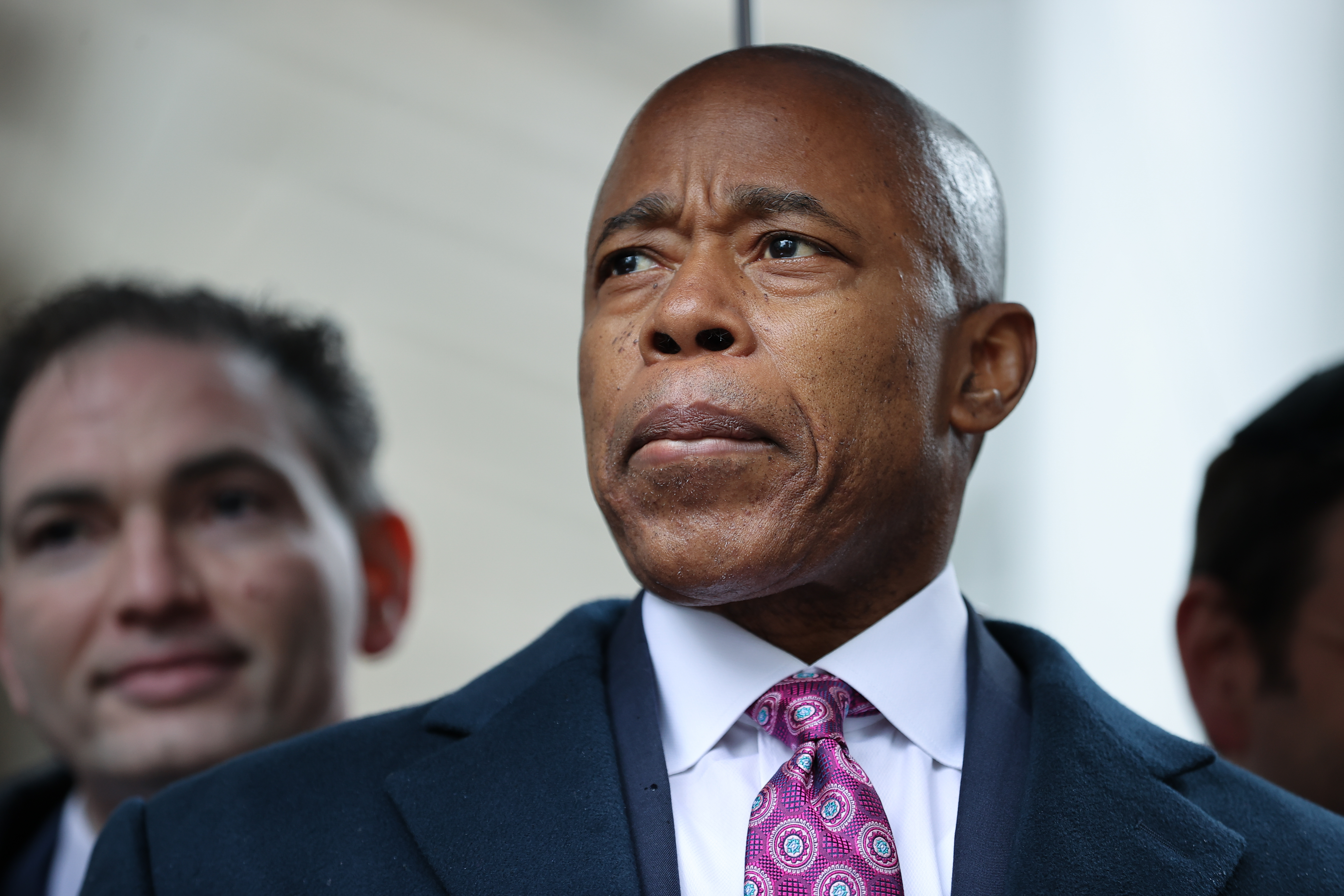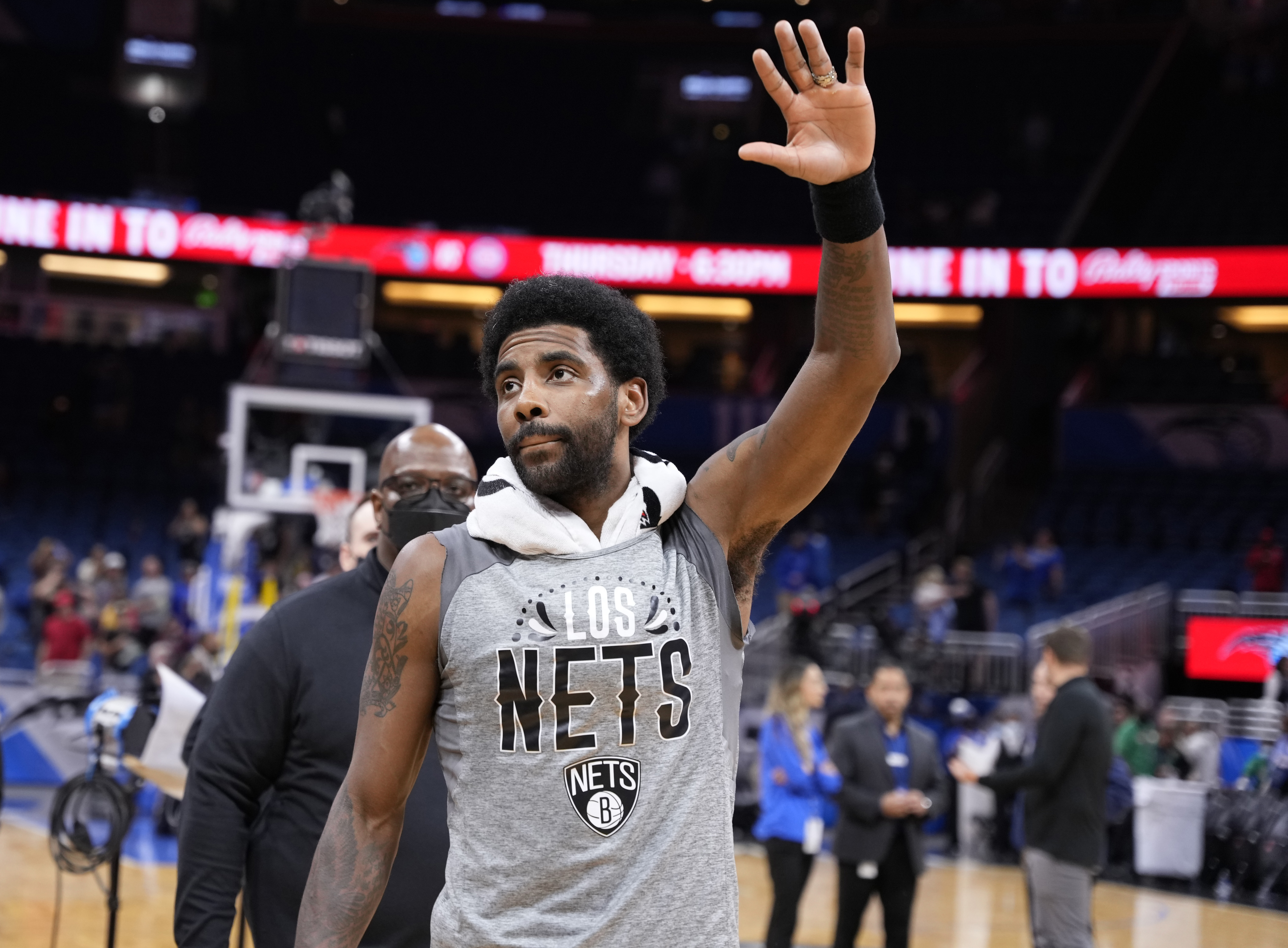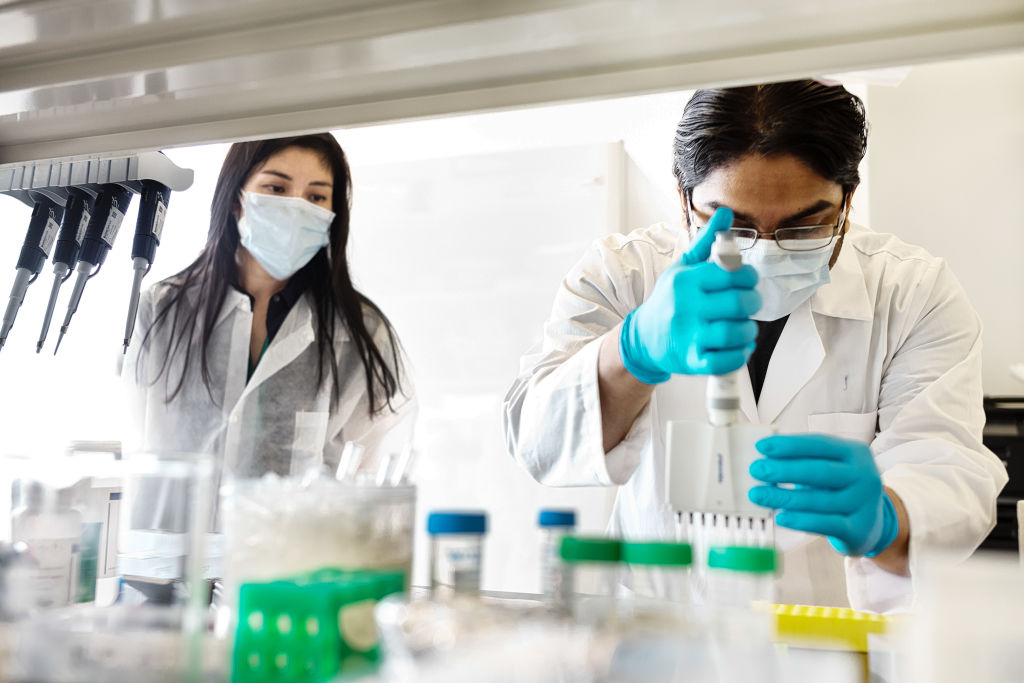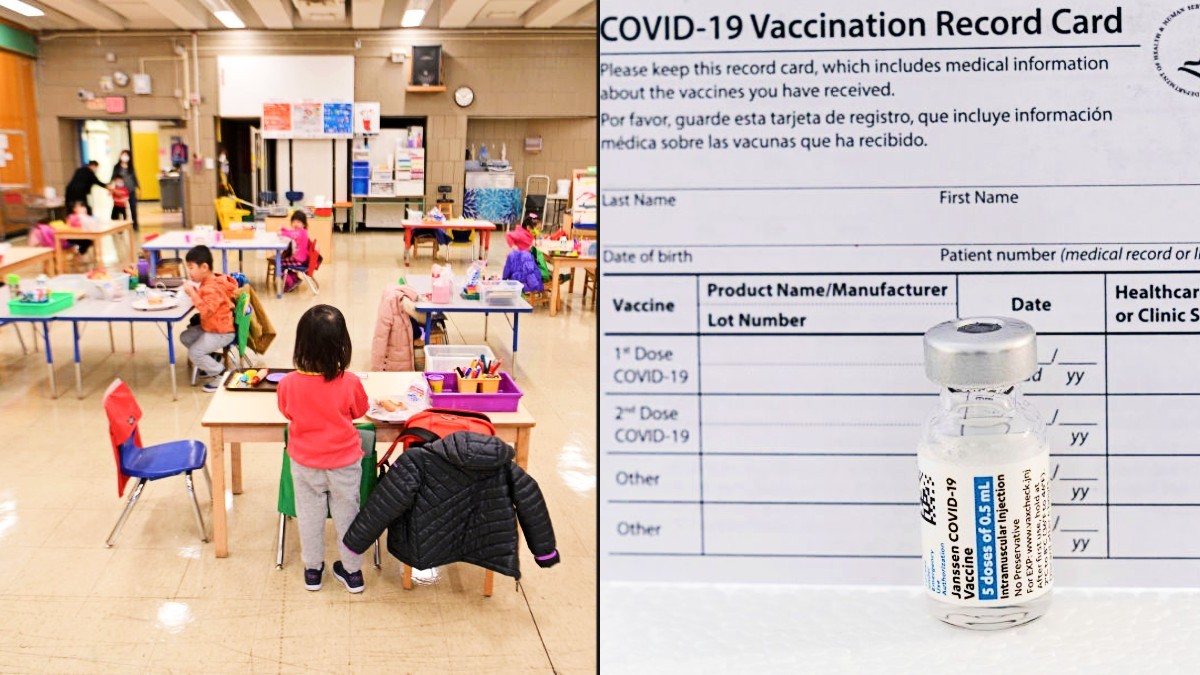What to Know
- Mayor Eric Adams signed an order exempting NYC-based performers from the private sector vaccine mandate while leaving the rule intact for the vast majority of private employees citywide
- Reports of the plan drew immediate backlash, with many calling it unfair that NYC workers remain suspended without pay while millionaire pros and entertainers may be about to get a pass
- Given the widespread protests and sick calls over the mandate when Adams' predecessor introduced it in late December, his anticipated move begs the question of whether disruptions could happen again
An adamant Mayor Eric Adams on Thursday formally announced an executive order exempting New York City-based professional athletes and performers from the private sector COVID vaccine mandate while leaving it intact for the vast majority of employees, a highly controversial move he billed as one of economic necessity.
Declaring his a "tough" decision in the best interest of New York's economic recovery from the pandemic, Adams appeared to brace for the controversy that began to brew a day ago, upon news of his intent, and that has mounted since.
"I'm mayor of the city and I"m going to make some tough choices. People are not going to agree with some of them," Adams said. "I was not elected to follow. I was not elected to be fearful but to be fearless. I must move this city forward."
Get Tri-state area news delivered to your inbox.> Sign up for NBC New York's News Headlines newsletter.
"I'm not making this decision loosely or haphazardly," Adams said. "The city has to function. Some will boo us, others will cheer us -- that is not only a game of baseball but that's the game of life and we have to be on the field in order to win."
The Democrat insisted his decision was intended to put New York City-based performers, which include athletes in this case, on a level playing field -- a contention in stark contrast to views from many who claim Adams' order does the exact opposite, favoring millionaires over the general public that elected him.
"Hometown players had an unfair disadvantage to those who were coming to visit," Adams said of the mandate, which excused only non-NYC residents previously. "It's unimaginable -- treating our performers differently because they lived and played for home teams. Unacceptable. It's a self-imposed competitive disadvantage."
Watch Mayor Eric Adams' full announcement in the player below.
Adding NYC-based performers, including outspoken unvaccinated ones like Nets star Kyrie Irving, who has had to remain on the sidelines at home while playing away, to the exempt list is an equalizer, the mayor insisted, and economic booster.
"By putting our home teams on an equal playing field we increase their chances of winning and that has a real impact on this city. It's not just fans in the stands, it's fans in the stores," the Democrat said from CitiField, arguing each home playoff game is worth millions in impact. "These are real dollars and they play a major role."
The NBA and the players union issued a joint statement praising Adams' decision.
“We applaud the mayor for listening to the concerns of our New York teams, players, fans and communities and for leveling the playing field for home teams and their opponents,” the statement said.
The amended exemption to the private sector vaccine mandate is effective immediately. The change allows players like Irving to once again take the floor and will allow any unvaccinated Met to take the home field on Opening Day next week. The Yankees will be able to do the same after their away series to open the season.
We are simply making sure the rules apply equally to everyone who is a performer regardless of where they perform their craft.
NYC MAYOR ERIC ADAMS ON VACCINE MANDATE EXEMPTION
Adams said the change only applies to a "small number" of people, since most have complied with the vaccine mandate. He didn't say how many -- and he sought to make it clear he believes vaccination is the right course for everyone.
"We are simply making sure the rules apply equally to everyone who is a performer regardless of where they perform their craft," the mayor said.
What about the janitors and ushers who serve Barclays Center, some have asked. What about the NYPD and FDNY, which had among the lowest vaccination rates citywide before the initial rollout of the mandate, leading to protests and sickouts? And what about the average private worker who has been suspended without pay?
Asked just two days ago, Adams said he had no plans to reevaluate the private-sector mandate just yet, calling the workplace an "important environment." He said he was following the science and that baseball and basketball "would have to wait."
Called out about that Thursday, the mayor said, "Two days is still a wait." He also said he had wanted to change the rule when he first took office but his medical team advised against it, given skyrocketing omicron infections across the country.
Adams reiterated his "peel-back-the-layers" approach to COVID restrictions, citing this latest announcement as another layer in the process. Many are outraged.
News of Adams' intentions drew immediate backlash as it developed late Wednesday, with many calling it unfair that city workers, many of whom worked through the pandemic when there was no vaccine available, remain suspended without pay for refusing the doses while millionaire performers get a pass.
“This exemption sends the wrong message that higher-paid workers and celebrities are being valued as more important than our devoted civil servants, which I reject,” said City Council Speaker Adrienne Adams, who is not related to the mayor.
Jay Varma, a health adviser to de Blasio, said in a tweet that the former mayor's mandate had legal standing because it applied to everyone.
The city suspended numerous public employees -- about 1,500 of them -- for refusing to get vaccinated, including public servants like firefighters and sanitation workers. All employers are supposed to bar unvaccinated workers from being in shared workplaces. Adams said Thursday he has no plans now to rehire them.
Staten Island Councilman Joe Borelli called the decision "appalling."
"We are firing our own employees but allowing exemptions for the fancy ones," he said. "What is the rationale for exempting basketball players from the city’s private sector vaccine mandate but not the ushers or janitors in the arena? There must be a compelling public interest for subverting the equal application of our laws. What is it?"
Police Benevolent Association President Patrick Lynch was equally opposed.
"We have been suing the city for months over its arbitrary and capricious vaccine mandate — this is exactly what we are talking about. If the mandate isn’t necessary for famous people, then it’s not necessary for the cops who are protecting our city in the middle of a crime crisis," Lynch said.
"While celebrities were in lockdown, New York City police officers were on the street throughout the pandemic, working without adequate PPE and in many cases contracting and recovering from COVID themselves," he added. "They don’t deserve to be treated like second-class citizens now."
“There can’t be one system for the elite and another for the essential workers of our city," said Harry Nespoli, chair of the Municipal Labor Committee, an umbrella group of unions that together represent about 350,000 city workers.
More Coverage
Adams, a known Mets fan, has said he felt the vaccine rule imposed by his predecessor was unfair when it came to athletes and performers because a loophole allowed visiting players and performers who don’t work in New York to still play or perform even if they were unvaccinated.
The creation of special exemptions for athletes or entertainers could potentially lead to court challenges arguing the city isn't applying the law evenly.
And given the widespread protests and sick calls over former Mayor Bill de Blasio's introduction of the vaccine mandate in late December, Adams' anticipated move brings up the question of whether such disruptions could happen again.
Under the prior rule, unvaccinated Yankees and Mets players were not allowed to play home games. Those rules have kept Irving, one of the highest-profile vaccine holdouts, both for his stardom and outspokenness, from playing games at Barclays Center and Madison Square Garden since he returned to the team in December.
The NBA and the players union issued a joint statement supporting the mayor's announcement, touting their 97% vaccination and 75% booster rates among players and vowing to continue their strong advocacy on the subject.
"With today’s announcement, we support the mayor’s determination that the old rules treating hometown and visiting players differently no longer made sense, particularly because unvaccinated NBA players will continue to test daily," the statement said. "We applaud the mayor for listening to the concerns of our New York teams, players, fans and communities and for leveling the playing field for home teams and their opponents."
Fans are somewhat on the fence about allowing the openly COVID vaccine-resistant Irving to finally hit the court after months of sitting out home games.
Some say they are excited about what his return could mean for the team but still believe he should get vaccinated. Other fans say he should never have been held out at home.
Brandon Kuty, a sportswriter for the Star-Ledger and NJ.com, said the rule change is a huge win for Irving and others like him.
"Kyrie Irving comes out on top: He gets to play without the vaccine. Whether you agree or not, he got what he wanted," Kuty said. "It’s got to be a huge relief to sports fans, and not worry about unvaccinated Yankees and Mets players."
The Mets were one of six MLB teams that didn't reach an 85% vaccination threshold that allowed relaxed protocols last season.
Mets executives said Thursday that 99.5% of its employees are now vaccinated, but pressed further, admitted that "players are kind of outside the scope." They wouldn't give an exact number of how many players have yet to be inoculated against COVID. The team also acknowledged it has terminated stadium workers over the mandate.
While the Yankees surpassed the Mets' early benchmark, the team was known to have several key unvaccinated players. As recently as nine days ago, Yankees star outfielder Aaron Judge declined to say whether he was vaccinated or not.
Unvaccinated MLB players are currently not allowed to travel to Canada to face the Toronto Blue Jays at Rogers Centre and will not be paid for those games. Until now they also weren't permitted to play in the Bronx.
The upcoming season includes 92 Yankee games total at those venues.
The Yankees, who open their season at home against the Boston Red Sox on April 7, said ahead of the official announcement that the team president was “working with city hall and all other appropriate officials on this matter.”





